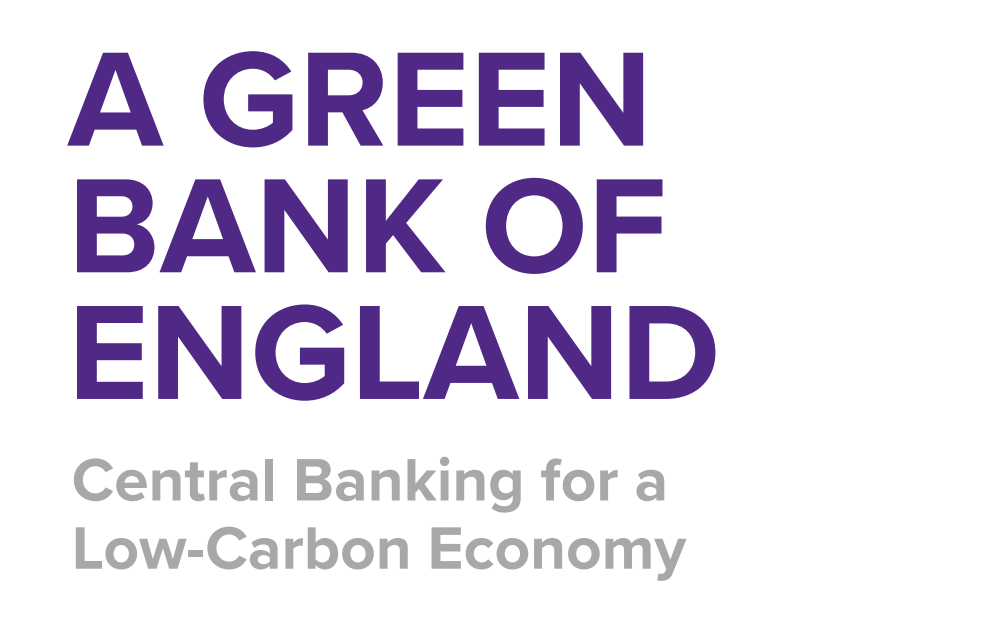A Green Bank of England
Climate change and the low-carbon transition are directly connected to the financial system. Even though the high-carbon economy creates systemic risk, banks still pour money into fossil fuels. Central banks, as powerful regulators with enormous financial resources, need to do more to help decarbonisation. We believe the Bank of England needs reform to hardwire it for climate sustainability.
PDF Download
Download full report here (Free, PDF, 53 pages)
Central banks recognise that climate change matters to their role in the economy. Financial stability is at risk. This risk is both physical – damage from extreme weather – and related to the low-carbon transition – rising costs for high-carbon assets due to policy, technology, and market developments. The Bank of England has voiced its concern and is monitoring the financial sector for climate risk.
But huge sums are still needed to close the ‘green investment gap’ and ensure we transition to a low-carbon economy. In the UK, this is a legal requirement under the 2008 Climate Change Act. Monetary policy could help, yet since the financial crisis, the Bank of England’s quantitative easing policies have unintentionally promoted high-carbon industries.
The result is a missed opportunity to decarbonise our economy, and policy incoherence at the Bank of England. In our report, we outline several policies that the Bank could adopt to decarbonise the financial sector and raise public investment in green sectors. These include green monetary policy and macroprudential regulation.
Crucially, political leaders should also reform the Bank’s mandate to hardwire it for sustainability and accelerate progress towards these policies.
Some claim it would be illegitimate for the central bank to go green. They presume monetary policy today is somehow ‘neutral’ with respect to the market. In reality, this neutrality is a mirage. All monetary policy has fiscal consequences, so government should design the Bank of England’s mandate to produce the most socially desirable ones. Political reform could make central bank policy that harms the climate illegitimate.
Designing a climate-friendly central bank for the 21st century is fundamentally a political process. The climate crisis and the low-carbon transition have changed the context for central banking. It is time policymakers took this on board and envisaged a new mandate for the Bank of England.
To recieve a copy of our press release or for other press enquiries, please contact press@positivemoney.org.
